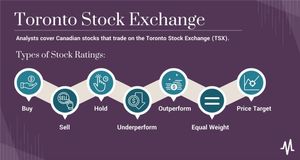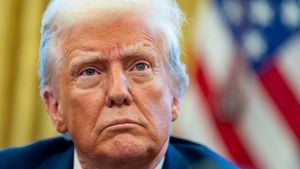U.S. President Donald Trump met with Nvidia CEO Jensen Huang at the White House on Friday to discuss pressing concerns surrounding artificial intelligence (AI) chip exports, particularly amid rising competition from China’s growing tech sector.
This high-stakes meeting came at a tumultuous time for the technology market, as it faced the shockwaves from the rapid ascent of DeepSeek, a Chinese AI company. DeepSeek recently launched a buzzworthy AI assistant, which achieved viral popularity, topping the charts as the most downloaded app on Apple’s App Store. This swift rise not only raised eyebrows but led to concerns about the United States losing its lead in AI technology.
Trump did not share specific details about the conversation but described it as “a good meeting” and referred to Huang as “a gentleman.” He stated, “I can’t say what’s gonna happen. We had a meeting.” Statements like these convey the significant focus of their discussion concerning how U.S. companies should prepare for challenges posed by advancements abroad, especially from China.
Nvidia, the leading developer of AI chips, has become increasingly important as geopolitical tensions have risen over technology and trade. An Nvidia spokesperson confirmed their appreciation for the chance to meet with the President, stating, “We appreciated the opportunity to meet with President Trump and discuss semiconductors and AI policy.” The discussions underscored the urgency of maintaining U.S. leadership amid tightening competition.
Notably, the meeting was arranged prior to DeepSeek’s meteoric rise to fame; nevertheless, recent developments made it imperative to address the U.S. strategy on AI technologies. A source familiar with the matter suggested Trump believes the emergence of DeepSeek could present both challenges and opportunities for U.S. companies, arguing they “don’t have to spend a ton of money building a low-cost AI alternative.” This observation may reflect the balancing act many American companies are now facing as they contend with increasing pressures from competitive Chinese tech firms.
The Trump administration is reportedly considering tightening restrictions on Nvidia’s sales of its H20 chips to the Chinese market. This scrutiny isn't new; it follows previous limitations imposed during the Biden administration, which included curbing exports of Nvidia’s most powerful AI chip, the H100, to China last year. When Nvidia tried to adjust by releasing the H800 model—just under the export threshold—it faced restrictions again, leading to the introduction of the H20 variant aimed at compliance.
Lawmakers are also joining the conversation, with representatives from both sides of the aisle expressing concern over the country’s tech export policies. Republican John Moolenaar and Democrat Raja Krishnamoorthi, who co-chair the House of Representatives Select Committee on China, have voiced calls for additional export restrictions, highlighting this as part of a broader review called by Trump to evaluate how the U.S. export control system should adapt to counter strategic adversaries effectively.
Meanwhile, the U.S. Commerce Department is investigating whether DeepSeek has leveraged American technology components not permitted for shipment to China. The advancing discussions indicate there is increasing pressure on tech firms to not only innovate but also to navigate regulatory frameworks now aimed at bolstering national security against foreign competition.
The economic impact of these discussions has already shown signs of volatility; Nvidia’s stock fluctuated significantly following news of DeepSeek's AI assistant launch, reflecting broader anxieties within the tech industry. Shares of the company plummeted by 17% at one point amid fears concerning U.S. companies' competitive edge. The juxtaposition of Trump’s administration's discussions and the market's reactions paints a vivid picture of the interconnectedness between political action and economic health.
While the meeting may be viewed as just another strategic dialogue between government and industry, its ramifications highlight the increasing importance of collaboration between U.S. tech firms like Nvidia and the Trump administration’s efforts to articulate clear policies for maintaining leadership against foreign competitors. Observers are watching closely to see how these discussions will shape the future of technology exports and national security policies.
By standing at the forefront of such influential conversations, leaders like Huang and Trump are not only addressing immediate responses to competitive pressures—they are also setting the course for how U.S. technology will evolve amid formidable global challenges. The stakes are high, and the outcomes of these discussions could define the future of AI technology for years to come.



